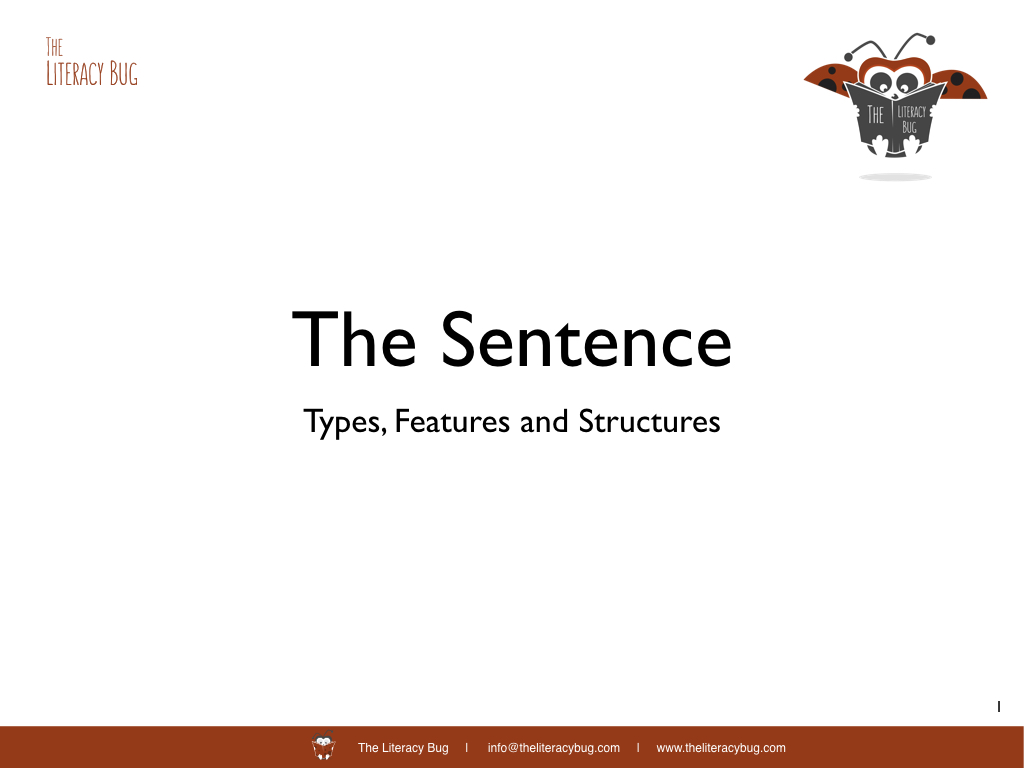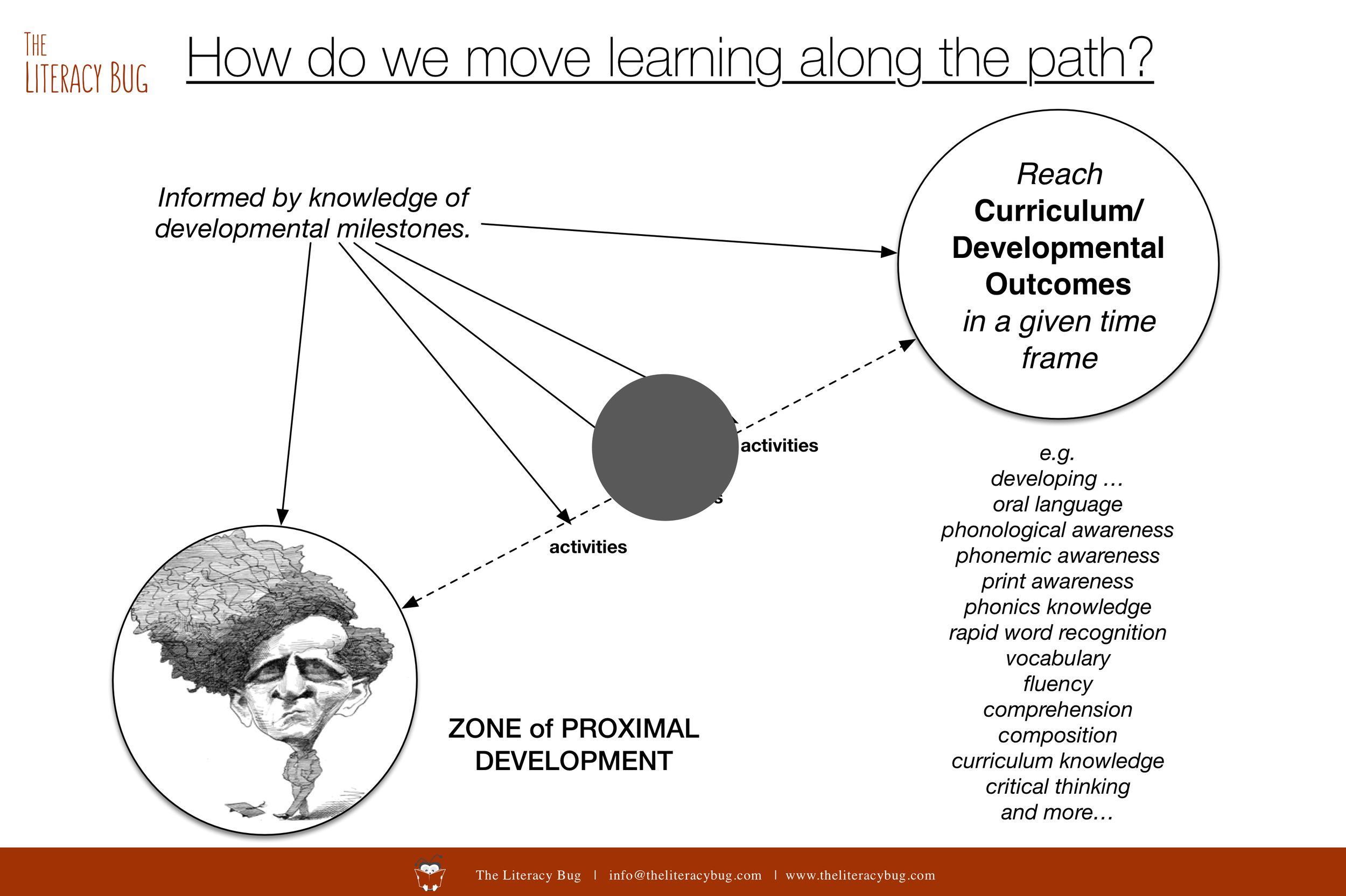There is a niggling concern that I always have when I become too preoccupied with "the basics" of literacy, including components like phonemic awareness and phonics. Sure, these skills are essential, and it’s relatively simple to measure progress in such areas, but I can't help but think, "this isn't the hardest part about literacy, though. We still need to integrate this knowledge into more complex and more ambiguous acts of communication."
I have witnessed many learners who develop such basics, but who still go on to struggle with reading and writing. At the risk of sounding unfair, they often struggle with the patience, stamina, concentration, guidance or even time to become a strong(er) reader/writer - all of which comes through opportunities to manipulate the script.
It reminds me of this little picture that Wittgenstein once painted of someone who had learned to deliberate over a task, “every now and then there is the problem 'Should I use this bit?' — The bit is rejected, another is tried. Bits are tentatively put together, then dismantled; he looks for one that fits etc.. So I sometimes make him say 'No, that bit is too long, perhaps another one fits better.' — Or 'What am I to do now?' — 'Got it!' — Or 'That’s not bad”' etc. ..." In particular, the act of writing resembles this inner dialogue. It's not a straightforward linear task.
At the culmination of this passage, Wittgenstein rightly states, "thinking gives [the learner] the possibility of perfecting his methods." Learning to read and write effectively is a bit like this inner dialogue. Actual reading and writing involves quite intricate acts of problem solving. The learner needs plenty of practice chewing over texts and creating them, particularly after they have gained momentum with the basics.
Wittgenstein presents us with an similar image of teaching that seems to suggest how one initiates another into ways of working, “if a person has not yet got the concepts, I shall teach him … by means of examples and by practice. -- And when I do this I do not communicate less to him than I know myself. In the course of this teaching I shall show him … get him to continue an ornamental pattern uniformly when told to do so. -- And also to continue progressions. And so, for example: I do it, he does it after me; and I influence him by expressions of agreement, rejection, expectation, encouragement. I let him go his way, or hold him back; and so on. Imagine witnessing such teaching. None of the words would be explained by means of themselves; [they makes sense in the context of the practice ... of apprenticeship].” (Philosophical Investigations, #280)
Consequently, this places experience at the forefront of learning. In other words, the learner requires the practical experience to integrate component skills into meaningful, literate act(ivitie)s. In doing so, the learner becomes adept at manipulating the script, and the mentor teacher provides the learner with opportunities to exert this knowledge in engaging ways. Therefore, “the teacher’s role is to help the child by arranging tasks and activities in such a way that [advanced tasks] are more easily accessible.” (Verhoeven and Snow, 2001, pg 4-5)
This gradual initiation relates to something I mention in the recent grammar/sentence presentation. That is, the rules of grammar do not tell me why one sentence should precede or follow another, nor do they tell me anything about what should be the content of my ideas. They may help me formulate and re-formulate a sentence with greater ease - and this is of value - but this in itself does not dictate the logic or content of my communication. Often the sequence of my sentences is guided by convention, and convention is shaped by the expectations of my audience. And I must have had enough experience with this audience to have a sensible understanding of my idea and how to express this idea.
As Ray Monk (1999) would say, “the reason computers have no understanding of the sentences they process is not that they lack sufficient neuronal complexity, but that they are not, and cannot be, participants in the culture to which the sentences belong. A sentence does not acquire meaning through the correlation, one to one, of its words with objects in the world; it acquires meaning through the use that is made of it in the communal life of human beings."
A similar sentiment led Newton Garver (1996) to express the following comment.
“If Wittgenstein and Saussure agree in using ‘grammar’ descriptively, they disagree about ... other matters. One is that Wittgenstein’s grammar has to do with uses of language (discourse conditions and discourse continuation) rather than forms and their combinations (morphology and syntax) ...
"Considering uses rather than forms is a deep rather than a superficial departure from classical linguistic methodology ... Studying uses of language makes context prominent, whereas the study of forms lends itself naturally to analysis.” (Garver, 1996, pg 151)
Maybe I am stating the obvious. Perhaps, I am not making a strong point here. But I write this against the backdrop of the proposal to introduce the Year 1 Phonics Check here in Australia. Whilst I have no objection of teachers getting good data on what their students can and cannot decode, we should always keep our eyes on the prize, which involves the integration of this knowledge into meaningful acts of reading and writing. I often ask, “how can I create opportunities for learners to integrate their skills into meaning making? How do I support and motivate them to take risks and challenge themselves?” We should always offer students opportunities to “use their expanding knowledge of language and their growing powers of influence to figure out [how to read and write] texts.” (Wolf, pp 131)
There you go. I’ve had my say. It’s not a critique of anything. Just an observation.
References
Garver, N. (1996). Philosophy as grammar. In H. Sluga & D. Stern (Eds.), The Cambridge companion to Wittgenstein (pp. 139–170). Cambridge: Cambridge University Press.
Monk, R. (1999, July 29). Wittgenstein’s Forgotten Lesson. Propsect Magazine. Retrieved from http://www.prospectmagazine.co.uk/magazine/ray-monk-wittgenstein/#.Uo_n_pHqvGY
Verhoeven, L. and Snow, C. (2001). Literacy and motivation: bridging cognitive and sociocultural viewpoints. In Verhoeven, L. and Snow, C. (Eds.), Literacy and motivation: reading engagement in individuals and groups (pp. 1- 22). New Jersey: Lawrence Erlbaum Associates Publishers
Wittgenstein, L. (2001). Philosophical Investigations (3rd ed.). Oxford, UK: Blackwell Publishing.
Wolf, M. (2008). Proust and the squid: the story and science of the reading brain. Cambridge: Icon Books.













